Nikola Pejaković
Nascimento : 1966-09-16, Banja Luka, Bosnia and Herzegovina

Ljubiša
Angel Ljubiša (Nikola Pejaković) is trying to bring together the incompatible, the unestablished director Bata (Andrija Kuzmanović), Una (Anđelka Prpić), the popular and charismatic TV presenter and the police inspector Trišić. (Andrej Šepetkovski).
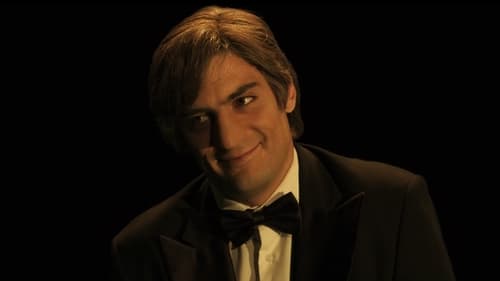
Writer
Biopic about Serbian folk singer Toma Zdravković, the man who is remembered not only for his songs and unique way he was singing them, but also as a bohemian, both in his behavior and his soul.
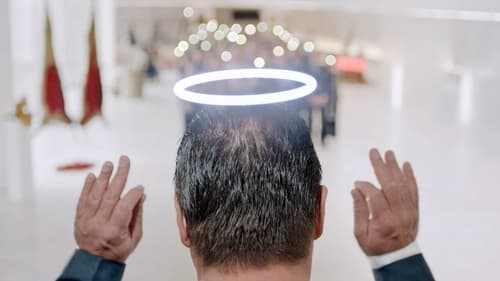
Ljubiša Trgovčević
Three stories about the impact of three God's miracles in the medieval sense that happen to the film's heroes living in a post-communist society that, after half a century of atheism, re-learns about Christianity.

Boris
The key character in the story story is Marko, a failed scriptwriter, who has been working as a taxi driver for years and follows his adventures during one hilarious night.

Slavko
Mirko, an average football player at the end of his career, is back in his hometown because of a knee injury. His family owns a restaurant which is on the verge of collapsing, both because of the economic unprofitability, and because of the plans of local criminals who are interested in the plot where the restaurant is located. One of those criminals is Slavko, Mirko's childhood friend, who suddenly returns to his life, just when Mirko needs him the most.

Writer
Mirko, an average football player at the end of his career, is back in his hometown because of a knee injury. His family owns a restaurant which is on the verge of collapsing, both because of the economic unprofitability, and because of the plans of local criminals who are interested in the plot where the restaurant is located. One of those criminals is Slavko, Mirko's childhood friend, who suddenly returns to his life, just when Mirko needs him the most.

Writer
In a world full of fear, where love is slowly drifting away and becoming something unreachable, we come across unfortunate people, such as Rasha and his demanding sick father. Living on the edge of existence during pre-apocalyptic time, he becomes a guard of an old hotel, and stumbles upon strange characters with whom he shares misfortune.

Labrador
Who left a dead body on a farm of truck driver's of which the best quality milk is made? Who smuggles illegal Betangin tablets? Who set on fire policemen's hands? Why does the ominous rabbit shows up? Two brave but incompetent police inspectors are trying to find out all of this.
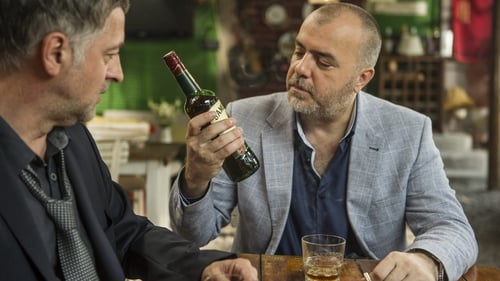
Baja
Two of the most popular Serbian actors discover a script that they immediately want to work on, forgetting that creating in Serbia isn't as easy as it seems.

Scenario Writer
Ustanička ulica is a Serbian political thriller. Dušan Ilić (Gordan Kičić), employed at the Serbian state prosecutor's office, gets a top secret case to investigate a war crime committed by a disbanded paramilitary unit. He manages to find Mićun (Uliks Fehmiu) who's the only surviving witness.

Žika
The story takes place in modern-day eastern Serbia, still fertile ground for various forms of superstition and prejudice. Zorica is a village girl who carries a curse. Ever since her first boyriend mysteriously drowned in the river, men around her are dying in most bizarre ways. The plot thickens when stubborn policeman Maane who doesn't believe in 'village tales' tries to investigate whether Zorica is a serial killer or a girl looking for love.

Domar
Ivan teaches history in a Belgrade high school. In his class, Ivan is provoked by a student and ends up slapping him on the face. In Serbia, in the heat of transitional changes, Ivan’s presence in school is no longer welcomed. He finds a temporary job opportunity in a war-scarred mountain village in Bosnia. On his way there, he meets Yasmina, a young Muslim woman, back from Germany to her homeland after the war and after being invited by an old friend – Hazim - who now runs a motel. A lone kiss in a stormy night, in a village still lying in ruins, will bring Yasmina and Ivan closer together in a joint escape from reality and to a ride on a dusty bus, where neither one of them wants to sit next to the window.

Doktor u hitnoj pomoći
Um documentário que olha para a realidade através de ocupações diárias de um serviço de ambulância. Dez anos se passaram desde que os ataques aéreos da OTAN na Sérvia, Belgrado, mas ainda carrega as feridas. Como pode-se imaginar o futuro, quando você mal pode transformar o passado?

Borko Pavić Dorijan
We Are Not Angels III is a Serbian film. In 1973 during a Youth Work Action, budding musician Borko Pavić (Nikola Pejaković) is disappointed to find out that the majority of his fellow young workers prefer to dance kolo to folkish harmonica sounds rather than listening to him play his acoustic guitar. Heartbroken and depressed he confides in his best friend that he read that in America the young people make the devil appear by playing the music backwards who then makes them rich and famous. He becomes the mega popular rock'n'roll superstar Dorijan. Cut to 30+ years later Dorijan is still a debauched, coke-snorting, and alcoholic superstar, except that he's now playing turbo folk instead of rock'n'roll. He lives with a silicone trophy girlfriend Smokvica and his best friend from childhood is his business manager. Despite still having his women, fame, and fortune, Dorijan is unhappy about having to resort to playing a musical style he hates in order to have all that.
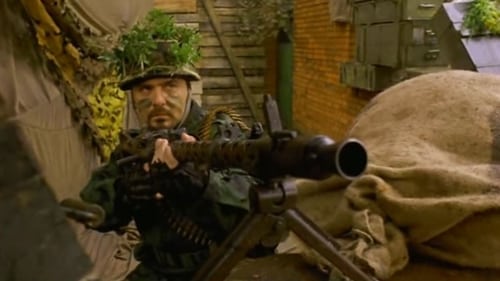
Matičar
In this sequel of "We Are Not Angels", a highly successful Yugoslavian comedy, a former playboy must cope with his daughter's adolescence, as well as numerous boys that keep knocking at her doors. A worried father thinks she may get in type of troubles he used to cause when he was just the age of her wooers.

A comic tale of a group of boys and a pretty girl who try to make easy buck.

Stratimirović
A half-mad patriot who shot Avax from the roof of his house captures its American pilot during NATO bombing of Yugoslavia in 1999. The hostage gets romantically involved with his sister while unsuccessfully trying to escape.

Writer
The story takes place in a dilapidated building in the blocks of New Belgrade, whose tenants constantly fight and do bad things to one another. In the same building lives a quiet and young married couple, who are completely different from their environment.
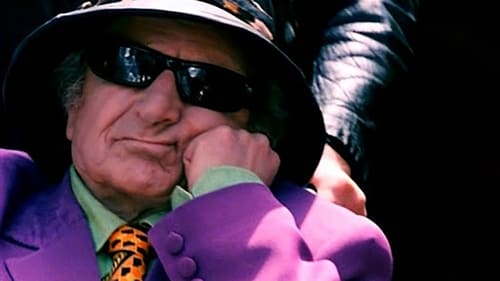
Kole 'Kok Nikol
Lemi e Kiza são os irmãos que foram encarregados de levar seu avô morto de Belgrado para Vrsac, tendo gasto todo o seu dinheiro, eles decidiram contrabandear o corpo em um comboio. Eles vestem o avô e o colocam no trem e dizem a todos que o avô está dormindo.
Um traficante, Limeni, com medo da polícia, esconde bulas de medicamentos no bolso do avô. O trem de repente freia e uma mala cai na cabeça dele.
Os passageiros pensando que ele matou o avô jogam seu corpo para fora do trem, sob o pretexto de que o avô se levantou e saiu andando. Então uma busca pelo corpo dele começa, mas não será fácil.

Bolničar II
Film "Normalni ljudi" is based on the motives of various writings by Srdjan Valjarevic. Srdjan is an excellent writer so unpretentious and humble that it is a crime placing his ideas into this context. I do not wanna go into the reason why did he except to sign this film. Oleg NOvkovic's approach to it is wrong from the very beginning. Surreal is only his attempt to make a noir film ( by: ninjakrme)

Svirač
Belgrade, 1999. Producer Sergei and his film crew are in a disastrous situation - the film they're making is under threat - there's no money, the crew are dissatisfied - and NATO bombing is just around the corner. Then a member of the State Security Service (Mileta) comes looking for American co-producer Harvey. Anxious and worried, in the midst of the bombing that's begun, Sergei hides Harvey from what he thinks is awaiting him - arrest. During the night, he thinks up a plan. He announces the start of filming on a new, patriotic film - in which the main role will be played by Harvey. The plan works - the State supports the film and Mileta, as the State's representative, joins the crew. However, the underlying conflict between Mileta and Sergei explodes during the first screening. Mileta accuses them of being artists, and not being patriots.

Writer
Belgrade, 1999. Producer Sergei and his film crew are in a disastrous situation - the film they're making is under threat - there's no money, the crew are dissatisfied - and NATO bombing is just around the corner. Then a member of the State Security Service (Mileta) comes looking for American co-producer Harvey. Anxious and worried, in the midst of the bombing that's begun, Sergei hides Harvey from what he thinks is awaiting him - arrest. During the night, he thinks up a plan. He announces the start of filming on a new, patriotic film - in which the main role will be played by Harvey. The plan works - the State supports the film and Mileta, as the State's representative, joins the crew. However, the underlying conflict between Mileta and Sergei explodes during the first screening. Mileta accuses them of being artists, and not being patriots.
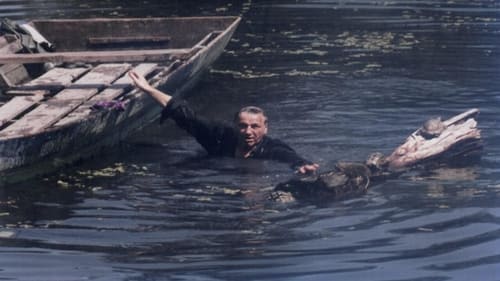
Sima, poštar
Actor who used to be a celebrity once upon a time, when he played in number of films and theatre shows, lives his elderly days monotonously... Up until he meets a girl wanting to become an actress. In their encounters actor revives his love affairs from his young age...

Lokator
Belgrade during the height of the war Yugoslavia in 1999. Kaja struggles with daily destruction and the constant threat of being drafted, but also with his impending divorce from his wife Tijana, who wants to emigrate with their son.
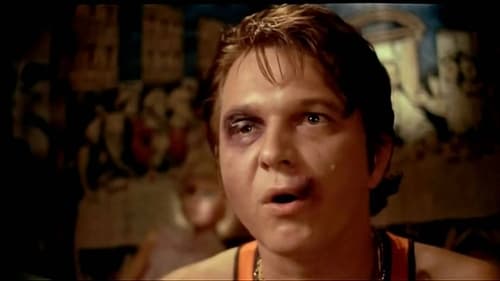
Kafedžija
This film follows two Belgrade youths on their rise to gangster legends in a decaying society.

Allegory as absurd black comedy about the Yugoslav conflict.
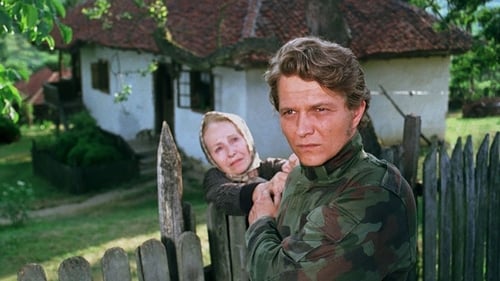
Writer
O ano é 1980. Halil, um muçulmano, e Milan, um sérvio, são amigos na Iugoslávia. Os dois meninos cresceram juntos. Eles moravam perto de um túnel inacabado, o Túnel da União e da Fraternidade, que deveria ligar Belgrado à Zagreb, servindo como símbolo da Iugoslávia unida. Doze anos depois, estoura a guerra da Bósnia e ambos agora encontram-se em lados opostos.

Halil
O ano é 1980. Halil, um muçulmano, e Milan, um sérvio, são amigos na Iugoslávia. Os dois meninos cresceram juntos. Eles moravam perto de um túnel inacabado, o Túnel da União e da Fraternidade, que deveria ligar Belgrado à Zagreb, servindo como símbolo da Iugoslávia unida. Doze anos depois, estoura a guerra da Bósnia e ambos agora encontram-se em lados opostos.

Deda Mraz
Made for New Year's Eve program, "Two Hours of Quality Program" exceeded all expectations becoming more than just a small TV movie. Using black humor as its sharp weapon, it dealt with ongoing chaos in the country and introducing of new values to the urban culture.

Invalid
The story of a young man who, in 1991. receives order to report to a military drill, and finds himself on Vukovar front, where he spends five months. Returning from there, he discovers changes within himself, but within his home town also. Totally lost, he finds no way to make contact with the environment, and suddenly experiences love with the girl who survived all horrors of that war...

(segment "Šargarepo ti ne rasteš lepo")
A three-part anthology film. Story 1: A released convict traces his girlfriend and other people who were responsible for his imprisonment. Story 2: A factory worker Pantic comes to Belgrade where he befriends a waiter. Having no overnight lodge, Pantic spends the night in the bar where his new acquaintance works, and becomes a victim of group of people who start picking on him. The initially protective waiter joins their harassment, and that's when Pantic pulls out a knife. Story 3: A female reporter gets back from the province without getting job done. On her way back, she meets an abused woman who lives with her husband in a trailer, making grill. The two will run away together, facing many hazards and trials.
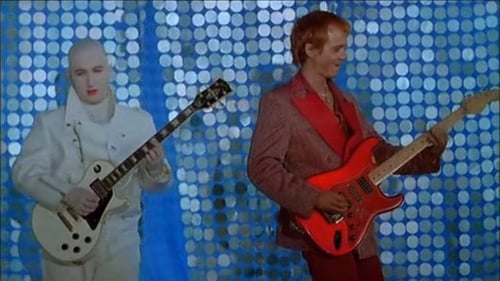
Taksista
Angel and the devil fight for the soul of a Belgrade playboy who made a young girl pregnant.

The Kosovo region of Yugoslavia near the Albanian border is the scene of political unrest and a modern Romeo and Juliet romance in this satirical political drama. A film director (Meto Jovanovski) gathers information for his documentary about the Serbs being forced to depart by Albanian Moslems. As the region heads towards ethnic warfare, the young Albanian woman Nadira (Sonja Jacevska) falls in love with the Serbian Miloljub (Cedo Arobabic). He is captured and castrated, and the private lives of Milobjub and Nadira become part of the director's story in his film. He must answer to the financiers and producers who believe his film was to be a comedy. The events foreshadow a long and bloody conflict between two factions, a battle that has not abated in the ten years since this film's initial release.






























